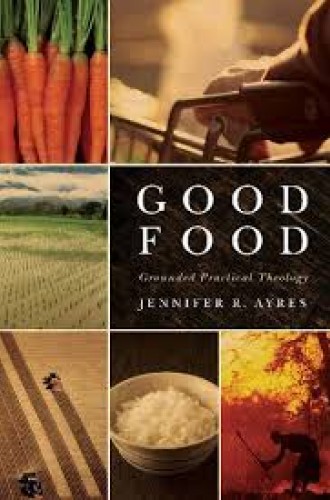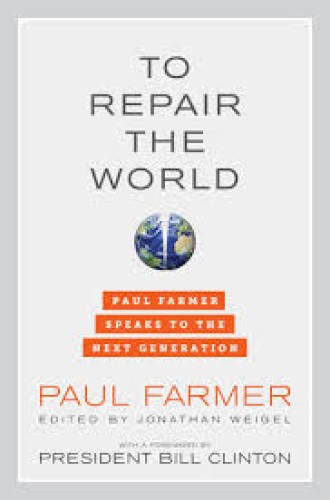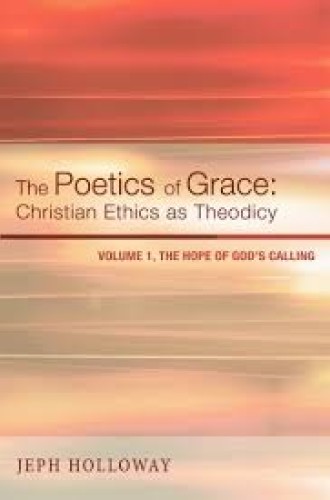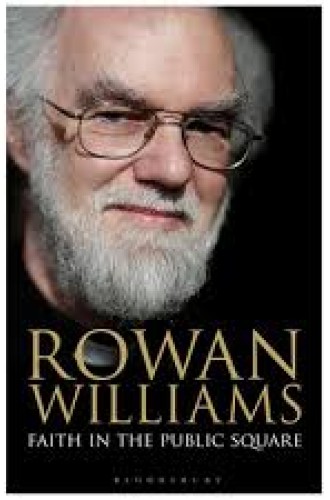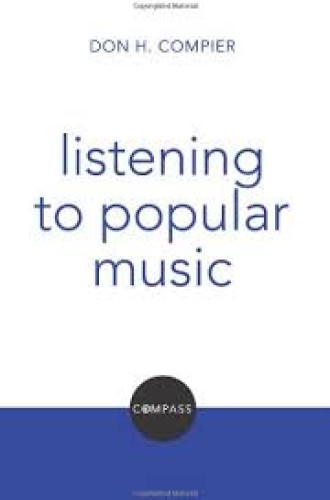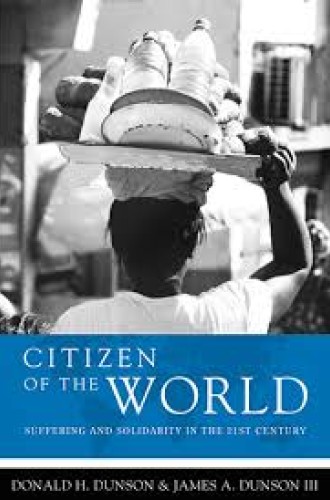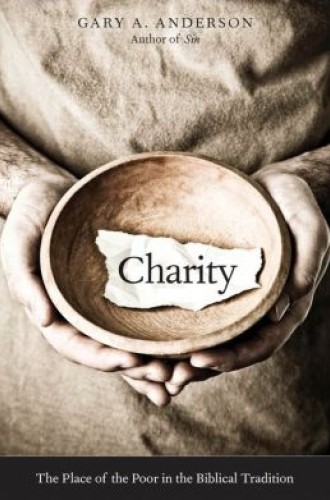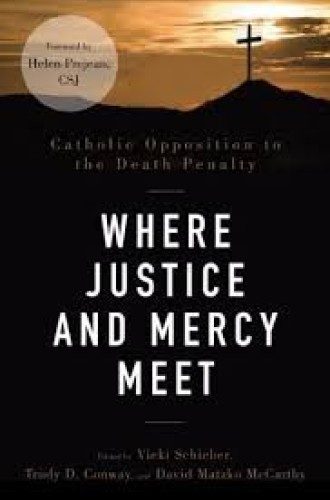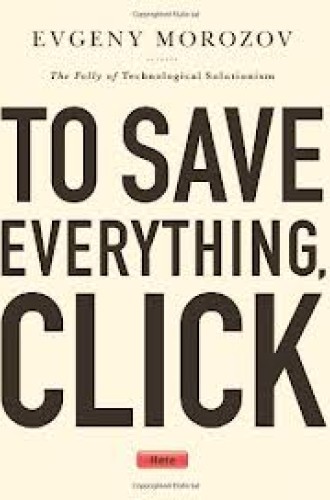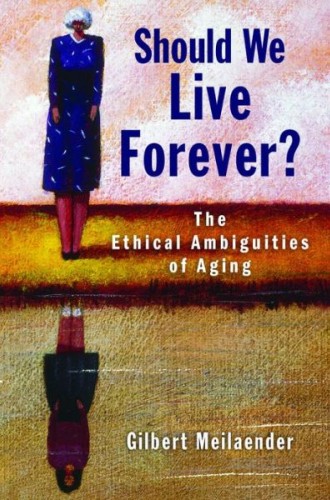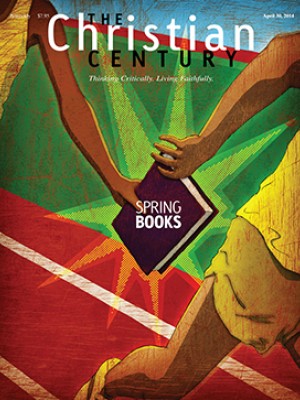Ethics
Good Food: Grounded Practical Theology, by Jennifer R. Ayres. Ayres presents good food as divine bounty and moral challenge. She rotates her crops, deftly weaving statistical analysis and moral frameworks with stories of particular practices of food faithfulness, hopefulness, and goodness. In the second half of the book she recounts particular practices of “church-supported farming, . . . transformative travel, and vocational sustainability.” Caught in a bad system yet hoping for an eschatological feast, we must both endure and repair, repent and rejoice, theologize more honestly, and act more faithfully. Ayres shows us the way.
To Repair the World: Paul Farmer Speaks to the Next Generation, by Paul Farmer. From nearly anyone else, a collection of 19 sermons and graduation speeches would be overwhelming. From Farmer, it is a beguiling, enervating prescription for accompaniment—the “go and do likewise” walk with hurting people toward Jesus’ future. Though Farmer jokes about being “as poetic as Heaney, as funny as Colbert, as engaging as Clinton, as creative as J. K. Rowling,” this poignant, hilarious, winsome, fascinating book gives us a sense of the urgency—and joy—of the corporal works of mercy.
Read our latest issue or browse back issues.
The Poetics of Grace: Christian Ethics as Theodicy, by Jeph Holloway. Holloway proffers an ingenious evangelical ethic that begins with the core question, “What is God doing about evil?” The answer, according to Holloway’s close reading of Ephesians 1–3, is that God is redeeming a church. That answer shapes successive chapters on the theocentric, redemptive, and ecclesial character of Christian ethics. Along the way, Holloway offers crisp readings of philosophical history and current events, of Paul’s engagement with ancient Ephesus and his own with pop culture, and of the moral contours of work, eugenics, and home life.
Faith in the Public Square, by Rowan Williams. Williams is a master of teasing out connections between public questions and core Christian claims about creation and redemption. The 26 public lectures collected here show that religious groups and their enemies often share the same confusions about matters like secularism and pluralism, that Christians ought to notice the sacramental connections between environment and economy, and that the “givenness” of the world invites and enables us to let go of fantasies of control.
Listening to Popular Music, by Don Compier. Alternatively light and profound, Compier invites us into reflective engagement with the soundtrack of our lives. The book has the requisite review of pop music’s all too pervasive racism, sexism, and consumerism, along with expositions of musical prophets, such as John Lennon, who denounced those sins. After succinctly reviewing the fear of music in the Christian tradition, he recommends recognizing music’s spiritual power to deepen our affectivity and enliven our imagination. Compier shows how pop music inculcates “joy, compassion, attentiveness and wisdom” by sharing his own.
Citizen of the World: Suffering and Solidarity in the 21st Century, by Donald H. Dunson and James A. Dunson III. Here is a sympathetic dialogue between a philosopher and a priest in which the strongest arguments against cosmopolitanism serve as counterpoint to poignant stories of “suffering and solidarity” in Kenya, Uganda, Mumbai, and Calcutta. Rich with cultural allusions from Dostoevsky and Dickens, The Office and The Onion, this book shows how moral argument, emotion, and personal experience fail to justify and motivate solidarity with distant neighbors. It succeeds as a “spiritual exercise . . . to cultivate not just a live heart but a live mind as well.”
Charity: The Place of the Poor in the Biblical Tradition, by Gary A. Anderson. Anderson’s strangely amazing book resituates our understanding of something we thought we understood well: the central place of charity—giving alms to the poor—in biblical faith. Rereading scripture and the tradition of its reception, Anderson shows that acts of charity are both sacramental (the poor person is an altar) and storable (as treasure in heaven) and that they are hardly the “works righteousness” of Protestant caricature.
Where Justice and Mercy Meet: Catholic Opposition to the Death Penalty, edited by Vicki Schieber, Trudy D. Conway, and David Matzko McCarthy. The editors deftly weave story, description, and analysis to introduce and review the 16 contributions to this collection, creating a coherent, compelling Christian argument against the death penalty in the United States. The heart of the argument is theological, rooted in rich exposition of liturgical practice, scripture, tradition, and church teaching.
To Save Everything, Click Here: The Folly of Technological Solutionism, by Evgeny Morozov. These days the cultural dream factory shaping our minds is located more in Silicon Valley than in Hollywood. “Digital heretic” Morozov unveils the digital utopia—the “amelioration orgy”—by critiquing “solutionism” and “Internet-centrism.” He suggests that we are better off with “imperfection, ambiguity, opacity, disorder, and the opportunity to err.”
Should We Live Forever? The Ethical Ambiguities of Aging, by Gilbert Meilaender. In a short book that is long on insight, Meilaender wrestles with the ambiguities surfaced by scientific interventions to prolong life. He focuses his reflection on three aspects of a virtuous life—generativity, patience, and completeness—and concludes that Easter is better than endlessly living this life.


